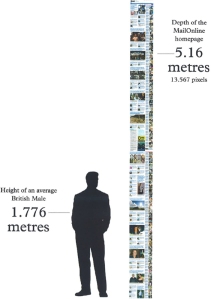If your industry contacts and friends have a keen interest in next-gen digital plays, they are most likely in Austin right now for the annual pilgrimage to the SXSW Interactive Festival, keeping you abreast with a constant stream of #SXSW photos and posts of all sorts.
SXSW is exciting stuff for sure, with a particular focus on our digital future. For the rest of us who are stuck in Sydney however, there is exciting stuff happening too – less future-facing and, say, more focused on the “here and now”.
I give you Content Marketing World Sydney, now in its third year and in full swing as of tomorrow for the next 3 days.
CMY Sydney seeks to inspire and guide Australian marketers, agencies and publishers alike, as well as address some of their immediate questions and hurdles with their content marketing approach.
IMO, it is also a great opportunity to reflect on what we aren’t still getting quite right, and how we compare with other parts of the world.
Finally, it’s worth clarifying that for the purpose of this piece, our focus is owned content.
How I came to learn about some disturbing facts
CMY Sydney first came to my attention as I was attending Joe Pullizi’s webinar on Epic Content Marketing: The 5 Essentials Marketers Need to Follow in 2015.
Pullizi is the founder of the Content Marketing Institute (CMI) – the producer of CMW Sydney –, a subject-matter expert and one of the speakers at CMW this year.
The insights gained from his webinar at the time, combined with the latest research from the CMI and ADMA, had helped me steer the strategic conversations I was having with a client in the right direction.
Specifically, as I was listening to Pullizi’s own experiences working with marketers and going through the research in detail, I discovered some unsettling facts about questionable yet widespread content marketing practices.
First, we learn that 9 out of 10 Australian marketers are using content tactics. Great. However, less than 3 out of 10 are having some kind of success with it. Disappointing.
Then, we discover that 46% of marketers are using a verbal-only strategy – just imagine how effective this approach would be in a large organization with a CMO, Corporate Affairs and Social Media teams etc. all meant to work hand in hand to the same strategic roadmap… enough said. In others words, nearly half of Australian marketers are winging it and hoping for the best their content tactics stick and deliver tangible business outcomes.
Not surprisingly, the research goes on to say that those marketers (only 37%), who do invest time and resource on developing and documenting their content marketing strategy are more effective in nearly all aspects.
Having a documented strategy *and* adhering to it is even better one might say. Yet only 4 out of 10 follow their content marketing strategy very closely i.e. share it with the right teams, review it and optimize it regularly etc. I guess this would largely depend on who owns it and champions it in the organization: only 39% admits to having a dedicated content marketing group – a key part of the problem in my view.
How Australian marketers compare with their British counterparts
Following these discoveries, I was curious to know: are content marketers in other parts of the world behaving any differently?
For this exercise, I thought I would pick the UK – one of the leading and most advanced markets when it comes to digital marketing, with content marketing a fast-growing component of it. So surely they know better, right?
8 of out 10 British marketers use content marketing and 4 out of 10 say they are effective. So marginally more effective.
When it comes to documenting their strategy and following it, alas you will be pleased (or sorry) to hear they aren’t faring much better: 51% are using a verbal only strategy (vs 46% in Australia) and only 44% of those who have it documented follow it very closely (vs 40%).
So all in all, a sorry state of affair on the strategic front on either side of the world. Yet a great opportunity for independent experts and agency types to offer to help and lead!
There are of course a number of underlying issues that explain the situation client-side. The lack of in-house specialist talent or dedicated champion are two that come to mind, and these are instances where external content experts can supplement marketers effectively. They can help in a number of valuable ways – at strategic level or across the full plan-create-test-learn cycle, for short or long periods of time.
For more on these and other fascinating insights, check out the Content Marketing in Australia 2015: Benchmarks, Budgets and Trends report.
